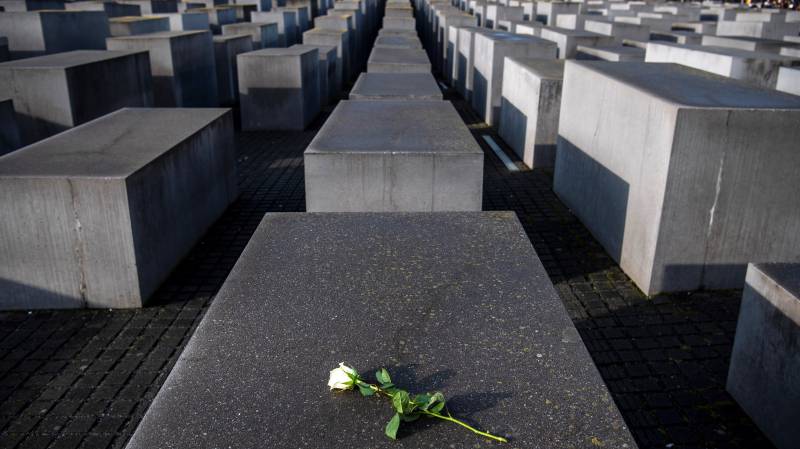Holocaust memorial sites fight new threat from far right

Stay tuned with 24 News HD Android App

From swastikas sprayed on the walls to Hitler salute selfies, far-right provocations are a growing problem at the sites of former Nazi concentration camps in Germany.
Museum directors have sounded the alarm over a spike in incidents, which include visitors writing messages of Holocaust denial in the guestbook and challenging tour guides on the facts of the genocide.
"Messages glorifying Nazism or demanding the camps be reopened for foreigners have become more common," Volkhard Knigge, museum director at the former Buchenwald concentration camp in eastern Germany, told AFP.
"There have always been incidents at memorial sites, but we have noticed an escalation due to the far right's breaching of language taboos," he said.
At Buchenwald, where 56,000 people died between 1937 and 1945, the number of reported incidents has doubled since 2015.
Right-wing extremists have also been known to take smiling selfies in front of furnaces used to cremate victims and leave stickers glorifying their fellow revisionists, Knigge said.
More recently, a growing number of tour guides have been interrupted by extremists propagating revisionist theories.
Uwe Neumaerker, director of Berlin's Memorial to the Murdered Jews of Europe, said that his museum faced similar problems.
"Visitors are questioning the truth of the genocide. That is something which we didn't experience even a few years ago."
Remembrance culture
This year marks 75 years since the liberation of most of the Nazi death camps in Europe.
The rise in incidents at memorial sites also comes as the generation of Germans who lived through World War II is beginning to die out and attention is shifting to making sure that the horrors of the Holocaust, in which six million Jews were systematically murdered, are not forgotten.
But recent years have seen the anti-immigrant AfD party establish itself as the most electorally successful far-right movement in Germany's post-war history.
Founded in 2013, the AfD is now the largest opposition party in Germany's parliament, and many of its key figures have attacked the long-standing culture of atonement for Nazi crimes.
Regional leader Bjoern Hoecke has called for a "180 degree reversal" in German remembrance culture, and labelled the Berlin Holocaust memorial a "monument of shame".
Former AfD chairman Alexander Gauland has dismissed the Nazi dictatorship as a "speck of bird shit" in German history, and called on citizens to be proud of soldiers who fought for the Nazi Wehrmacht, or army.
"The far right and the AfD always adopt a strategy of pushing boundaries in order to normalise their thought," said Bianca Klose, of the Berlin-based organisation Mobile Counseling against Right-wing Extremism (MBR).
Since the party won seats in all of Germany's regional parliaments, several AfD MPs have also tried to influence the cultural-historical programmes of memorial sites, she added.
"They question the pedagogical choices and attempt to erase certain historical aspects. Even worse, they intimidate people by demanding information about their private life or political orientation," Klose told AFP.
Security measures
There are 15 former concentration camps on German soil which have been turned into memorial sites.
The most well-known among them, Dachau, Sachsenhausen, Neuengamme, Bergen-Belsen, Ravensbrueck and Buchenwald, received almost three million visitors in 2018.
But faced with the new challenge from the far right, many of the sites have been forced to adapt.
In Berlin, Neumaerker allows his tour guides to choose themselves whether or not to accept groups from the AfD, and has provided staff with special training in how to react to provocations.
Like his colleague Knigge at Buchenwald, he has blacklisted certain members of the AfD.
At Neuengamme, any delegations from the AfD are accompanied by extra tour guides.
Certain sites have also introduced a so-called "extremist clause", prohibiting access to anyone wearing clothes which reference the Third Reich.
Yet financing CCTV cameras and security personnel diverts funds which "would be more useful in education... especially for younger people," said Knigge.
The Buchenwald director also said he regretted that schools had cut back on lessons dedicated solely to teaching the history of Nazism in their busy timetables, an issue that has provoked concern in Germany and a parliamentary study two years ago.
"The memorials can't compensate for what schools are no longer doing," he said.
